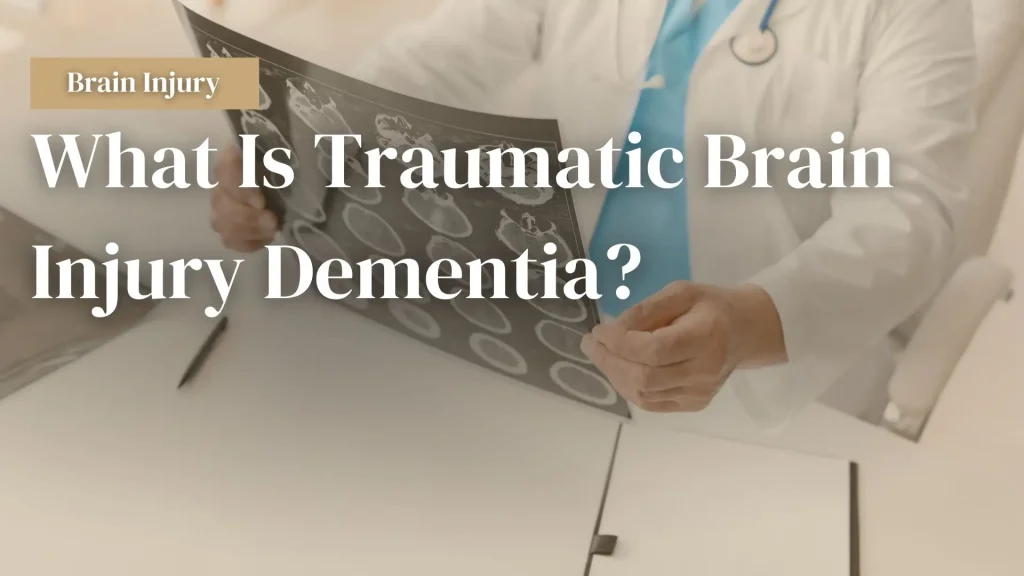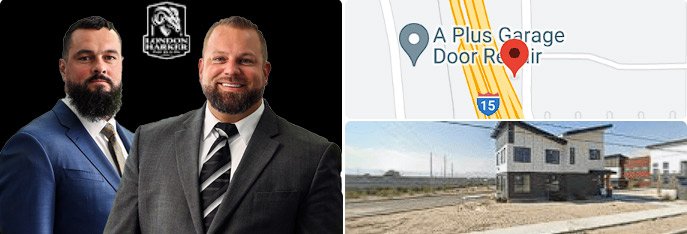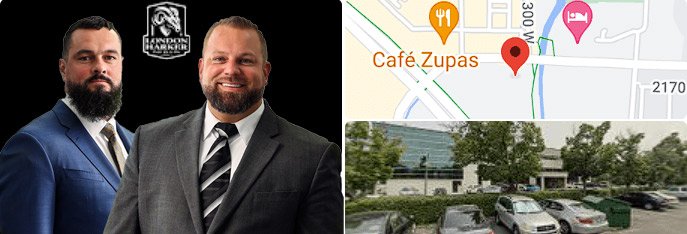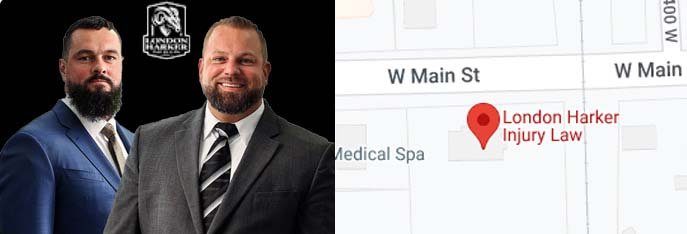Posted on Saturday, August 3rd, 2024 at 9:00 am

Traumatic brain injury dementia is a type of cognitive decline that occurs due to a severe head injury. It’s a condition caused by the brain undergoing significant damage, leading to symptoms similar to other forms of dementia, such as memory loss, confusion, and impaired thinking.
Fully understanding traumatic brain injuries (TBIs) as a risk factor for dementia is crucial, especially for those in Utah who may be at risk due to accidents that result in head trauma. If you can connect the dementia back to a specific head injury, you may be able to seek compensation to cover your medical expenses and other losses.
What Are Traumatic Brain Injuries and Dementia?
A traumatic brain injury occurs when an external force injures the brain. Some of the most common causes of these injuries are falls, car accidents, contact sports, and physical assaults. Depending on the forces involved and the part of the brain that suffered injury, it can range from mild TBI to severe brain damage, potentially leading to long-term cognitive issues.
Dementia is a general term for a decline in cognitive function that’s severe enough to interfere with an individual’s daily life. Alzheimer’s disease is the most common form of dementia, but there are others you may have heard of before, as well. For example, chronic traumatic encephalopathy (CTE) is a form of dementia common among former football and hockey players.
Can a Traumatic Brain Injury Cause Dementia?
There have been multiple studies on the connection between TBIs and dementia over the years. Some studies found that severe TBIs increased the chance of dementia by two to four times, and other studies show a significant increase in dementia among older adults who suffered TBIs earlier in life.
TBIs can cause dementia by damaging brain cells and disrupting how parts of the brain communicate. In some cases, the brain may be able to compensate for this damage in the short term. But later in life, the effects of the damage can become more apparent, leading to dementia symptoms.
Individuals who suffer severe or multiple brain injuries appear to have an increased risk of developing dementia. However, it’s currently unclear how significantly mild or moderate brain injuries increase the likelihood of developing this condition.
Symptoms of Brain Injury and Dementia
When a TBI leads to dementia, it can result in a condition that combines the symptoms of both. Symptoms can vary depending on the severity of the injury and the area of the brain affected, but some of the most common include:
- Memory Loss – Individuals may have difficulty remembering recent events, appointments, or familiar faces.
- Confusion – Individuals may suffer from disorientation regarding time, places, or people.
- Cognitive Impairment – Individuals may have trouble thinking, concentrating, or making decisions.
- Behavioral Changes – Individuals may experience increased irritability, aggression, or mood swings.
- Speech and Language Issues – Individuals may struggle to find the right words, form sentences, or understand language.
- Motor Function Problems – Individuals may have difficulty with coordination, balance, or performing everyday tasks.
Even one of these symptoms can cause significant disruptions in an individual’s daily life, and multiple symptoms can severely impact their quality of life. For this reason, early diagnosis of traumatic brain injury is crucial so those impacted can receive the care they need.
When Should You Seek Medical Help After a Head Injury?
If you experience TBI, seeking medical attention immediately is essential, even if the injury seems minor. It’s also important to continue seeking ongoing treatment for as long as you experience symptoms or until your doctor believes you have improved.
One of the major concerns with traumatic brain injuries is that the symptoms may not appear until later. Some of the more severe symptoms, such as those connected with dementia, could show up weeks, months, or even years after the injury. This delayed onset of symptoms can make people initially think that they’re okay when they need ongoing medical attention.
You should see a doctor if you experience any of the following symptoms after a head injury:
- Persistent headaches
- Nausea or vomiting
- Loss of consciousness
- Seizures
- Slurred speech
- Weakness or numbness in the limbs
- Loss of balance or coordination
These symptoms can be signs of something wrong that requires immediate medical attention, such as brain bleeding or swelling.
Can You Seek Compensation for Dementia Caused by a Brain Injury?
 If a loved one developed dementia after a traumatic brain injury, can you seek compensation through a personal injury lawsuit? You may have a case if someone else’s negligent or intentional actions caused the injury.
If a loved one developed dementia after a traumatic brain injury, can you seek compensation through a personal injury lawsuit? You may have a case if someone else’s negligent or intentional actions caused the injury.
To seek compensation, you will need to prove that the brain injury is the primary cause of the dementia. To do this, you will need to provide medical records and expert witness testimony. Then, you must demonstrate that the defendant is the one who caused the injuries that led to the dementia.
Additionally, Utah has a four-year statute of limitations for personal injury lawsuits. Typically, the clock begins to run on the date of the injury. However, in certain circumstances, it may not begin until you know or should have known your loved one suffered an injury. You may not have realized that your loved one suffered a severe injury until they began displaying dementia symptoms.
The most important thing to do to seek compensation is to hire an experienced brain injury attorney. They can connect your loved one’s symptoms to a previous injury, identify the at-fault party, and file your claim within the applicable deadlines. They’ll also work to negotiate a settlement on your loved one’s behalf, represent them at trial if necessary, and provide ongoing legal advice.
Contact a Utah Brain Injury Attorney Today
If you or a loved one suffered a traumatic brain injury and are starting to show signs of dementia, contact London Harker Injury Law at 77CARCRASH or through the online form to arrange a free consultation with one of our experienced Utah brain injury attorneys. Our law firm is dedicated to helping people like you get the compensation they deserve. We’ll evaluate your case, explain your legal options, and assist you in finding the dementia care resources you need. With our proven track record of successful case results, we can answer your questions and handle your case.



